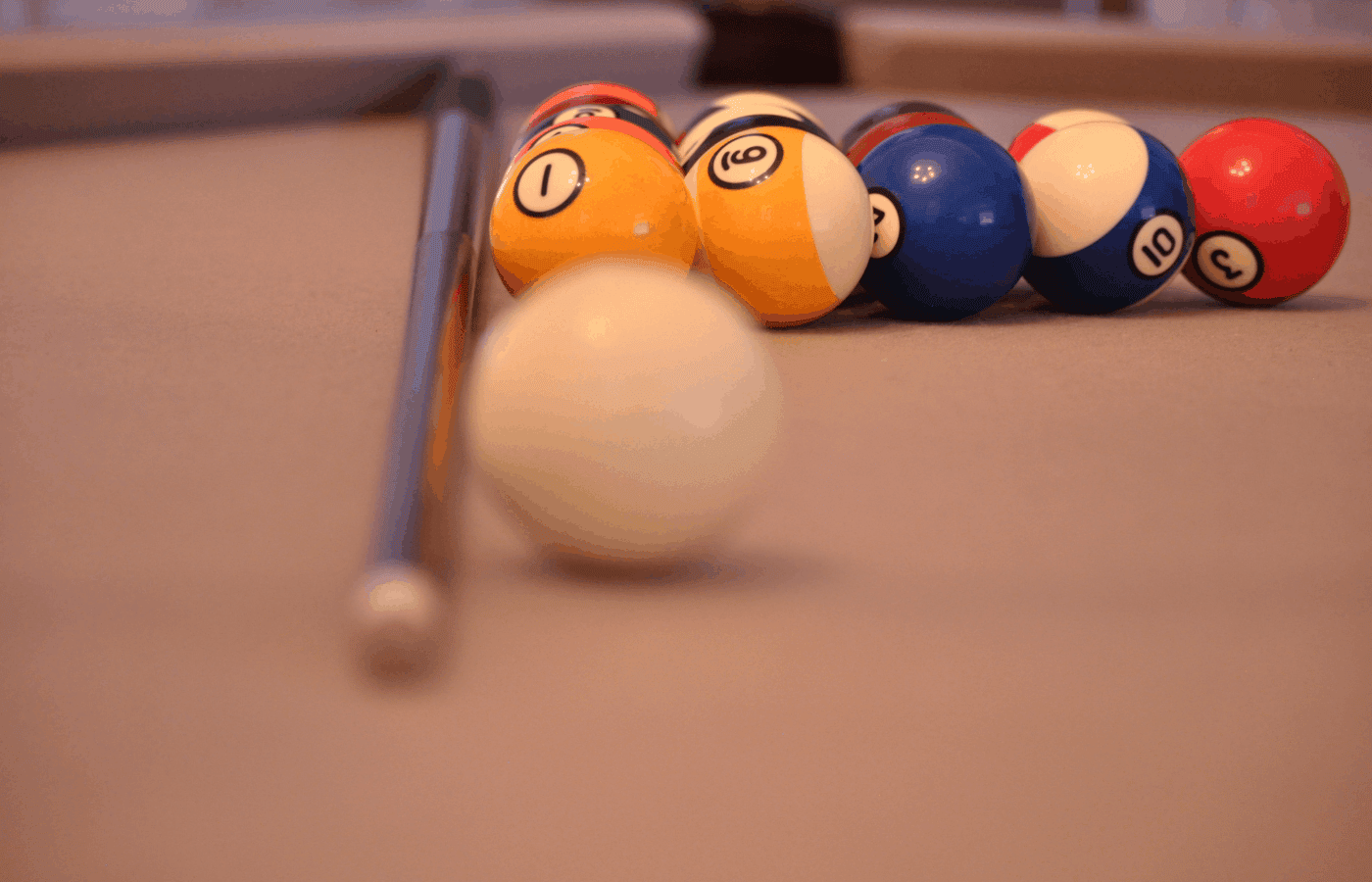Ivory pool balls are very rare in the billiard games of today. Very few people possess these because they come from the tusks of near-extinct animals. This means the ivory from these endangered creatures comes with a hefty price tag. Often fashioned for use as the cue ball of a pool game, they can also come as an entire set.
There are a couple of methods to keep your real ivory pool balls as clean and pristine as possible. But one thing you absolutely shouldn’t do is use soap and water, you will be fighting an uphill battle. Do not attempt to clean your ivory pool ball with any chemical-based products or abrasive sponges.
Maintaining your ivory pool balls to stay in prime condition allows you to use them for decades to come. But, you must be meticulous and use caution. You want to ensure their continued accuracy and beauty for the ultimate in performance.
How Do I Know if My Pool Balls Are Ivory?
Before cleaning your balls, you should make sure that what you have on your hands are real ivory pool balls. What’s more, you want to know what kind of ivory you have since many legislators worldwide are banning certain types. On July 6th, 2016, all trade and sales of African Elephant ivory is a US federal offense and can result in jail time with exorbitant fines.
Heat
Some people suggest using a scalding hot needle on the surface of the ball. If it turns black, it’s real ivory. If it melts or burns the ball’s surface, it’s artificial, plastic or acrylic. But it’s not advisable to do this because you will destroy the ball.
Plus, it doesn’t tell you what type of ivory you have either. So, only use heat in the case you won’t be using them in a billiard game.
Spider Line Identification
Pool balls made of ivory come from the part of a tusk containing dentine. It is the centermost area and has a recognizable grain structure that’s impossible to duplicate or falsify. This appears as random spider-like lines. Artificial ones have parallel lines and some kind of pattern uniformity.
Black Light
These lines are easier to see on cue balls than they are on the pitch blackness of the eight ball. So, in this case you can use a black light. This is an okay way because it gives some proof to support the dentine. It’s gentle and non-destructive too.
Regardless of the ball’s color, when you shine a black light onto it, there will be a white hue. Plastics and resins will glow a bluish color. If you see yellow or off white, then the ball may have either a patina or it’s from aging, urine, dung or other animal fats. So, this method isn’t foolproof and you have to be very careful.
Schreger Lines
Real ivory obtained from pachyderms have extremely unique markings called “Schreger lines.” These are rows of microscopic tubes that cross and form into angles. Such lines must be present to qualify as a piece of pachyderm ivory.
The degrees in which they make these angles determine the kind of ivory it is. For instance 90° means it’s from a mammoth whereas 115° means it’s from an elephant.
When in Doubt
Of course, you could always opt to take it to a pawn shop or an antique dealer. They will be able to tell you if your pool balls are true ivory. If they can’t, it’s likely they may know someone who can help you.
How to Clean Ivory Pool Balls
To ensure your authentic ivory pool balls stay in perfect order, you should clean them after every 10 to 20 games. But, if you notice them dirty or discolored before that time frame, you should clean them right away. There’s a light, quick method and a deeper cleaning to remove discoloration.
Fast ; Quick
The first thing to remember is that you are dealing with an animal’s tooth. This means you shouldn’t use window cleaner, bleach, petroleum-based solvents or abrasive scrubbing devices. Cleaning ivory requires a delicate approach with some finesse. But first, make a trip to your local art supply store and obtain the following:
- Sable-hair Paintbrush (large enough for each ball’s circumference)
- White Vinyl Eraser
- Groom Stick (a sticky putty-like substance that works as an eraser)
- Two clean, dry microfiber towels
To check the current price and availability of white vinyl erasers, click here to view them on Amazon.
Instructions
Place one ball onto a microfiber towel and dust off the entire surface with the paintbrush. Flip the towel over, set down the ball again and gently rub the ball’s surface with the White Vinyl Eraser. Don’t press hard or rub vigorously but pay attention areas with more marks and scuffs.
Next, take the Groom Stick while holding the ball in your hand and press it into problem areas of the ball. Once again, don’t press too hard or be very rough. Wipe the ball down with a different microfiber towel and put it away in a safe spot. Do this for each ball.
Deep Clean for Discoloration
In the event you want to remove yellowing or other stubborn filth from your ivory pool balls, there is something more intense you can use. Acquire the items from the list below:
- Lemons cut into halves
- Medium to Fine Coarse Salt
- Several Microfiber Towels
- Mineral Oil (for hydrating)
Instructions
Salt one half of a lemon and rub it onto the ball’s surface in gentle, circular motions. Add more salt to the lemon as needed and squeeze the lemon juice onto stubborn spots. Don’t wipe the surface of the ball; allow it to air dry. Then, use a slightly damp microfiber towel and wipe the ball clean.
With yet another microfiber towel, wipe the pool ball dry. Because salt and lemon juice robs ivory of moisture, use a little Mineral Oil to keep it well hydrated. With a quarter-sized amount of oil on a clean microfiber towel, lightly rub down the entire surface of the ball.
Wrap the ball in the oil-soaked towel and put it in a sealable plastic bag for six to 10 hours. Afterwards, buff the surface with a clean microfiber towel to remove any excess oil. Let the ball sit out for a day or two. Finally, inspect the ball for any oil residue, remove whatever is necessary with a clean microfiber towel and put it away in a safe place.
Final Thoughts
Having ivory pool balls can be a wonderful and beautiful part of your billiards set. Whether new or antique, they will require some care and fuss to keep them functioning with precision. So, it does take a little meticulousness, but the results are worth it.
Before you clean them, though, you want to ensure that your pool balls are bona fide ivory and not artificial, plastic or acrylic. The type of material will help you determine how to clean them. So, you don’t want to use regular household substances on ivory.
Remember, ivory comes from the tusk of an animal, so the kinds of things you use to clean it won’t be the norm. You have to be careful and cautious with a light touch so you can clean them without sustaining unnecessary damage.



